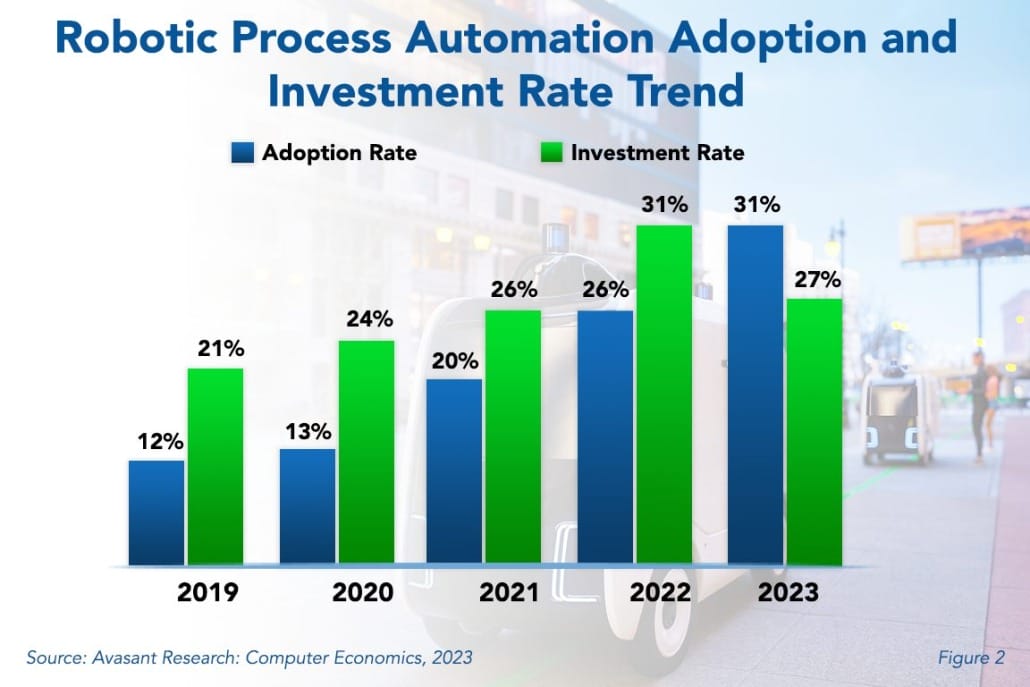Two years of inflation and rising labor costs have increased enterprise interest in automation. As RPA has become easier to deploy and corporate stakeholders have gained experience, trust in RPA has grown. As a result, CIOs and business process leaders are looking at end-to-end process automation to make the most of stretched budgets.
As shown in Figure 2 from our full report, Robotic Process Automation Adoption Trends and Customer Experience. 31% of all organizations have adopted RPA in 2023. That is up from the 26% adoption rate in 2022. In 2021 the adoption rate was 20%. Regarding investments, the percentage of organizations making new investments in RPA is 27%, down from 31% in 2022, and up from 26% in 2021.

Although RPA is designed to be user-friendly and accessible, it can have its problems. Nevertheless, we expect RPA usage to increase even though there may be difficulties. The next stage is to integrate attended automations and RPA with AI and ML capabilities, which some firms have already started to adopt. These kinds of tools, also known as intelligent automation, intelligent process automation, and cognitive RPA, let companies automate more intricate, less rule-based processes.
“Large corporations are leading the adoption of RPA due to their large scale of business processes,” said Asif Cassim, principal research analyst for Computer Economics, a service of Avasant Research, based in Los Angeles. “But as RPA solutions become more widely available and user-friendly, smaller companies should follow suit.”
We expect the majority of companies, especially large organizations, to continue RPA adoption, making workers more productive. RPA is also gaining popularity with business process outsourcing providers, which see it as a way to lower their overall cost-of-service delivery.
Our full report provides an overview of RPA adoption and investment trends, providing data on how many organizations have solutions in place, how many are in the process of implementing it, and how many are expanding implementations. We also look at the ROI experience, TCO experience, and considered or planned uses for new RPA investment. We conclude with important principles to apply in planning and implementing RPA solutions.
This Research Byte is a brief overview of our study, Robotic Process Automation Adoption Trends and Customer Experience. The full report is available at no charge for Computer Economics clients, or it may be purchased by non-clients directly from our website (click for pricing).


